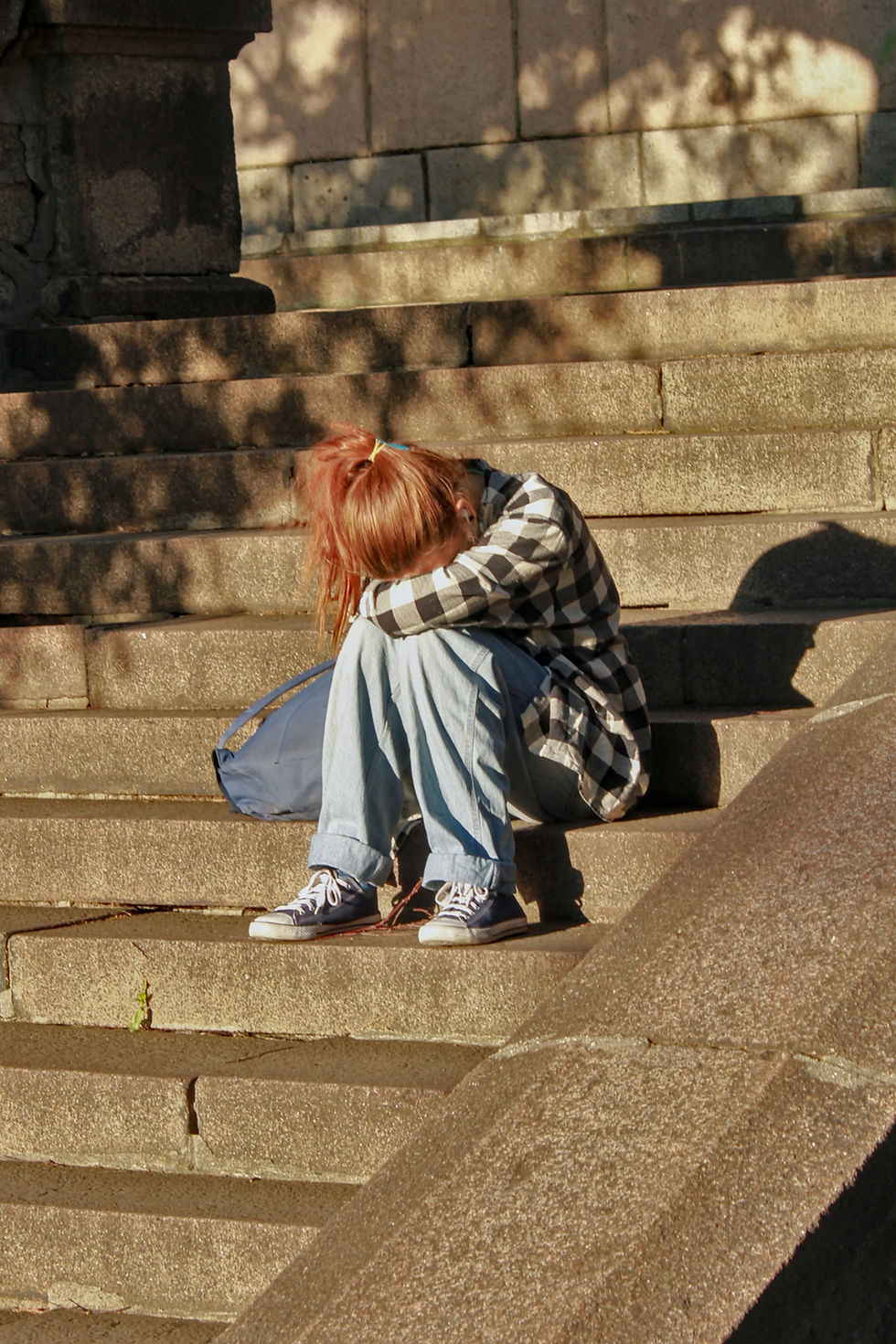Overcoming Teenage Anxiety: The 3 Stages of Healing
- Megan Stapelberg
- Sep 2, 2024
- 2 min read
Anxiety is becoming a more common experience among teenagers today, affecting their mental well-being and daily lives. Rising above anxiety is a journey that unfolds in distinct stages, each crucial for healing and growth. If you're a teenager struggling with anxiety or a parent seeking to understand your child's experience, knowing these stages can provide valuable insights into the healing stages.
Stage 1: Acknowledgment and Awareness
The initial stage of healing from anxiety begins with acknowledgment and awareness. For many teenagers, this phase often starts with recognising and admitting that something isn't right. It might involve acknowledging persistent feelings of worry, fear, or unease that impact daily activities, social interactions, or academic performance. This can sometimes be one of the most challenging stages, as admitting that things are not going that well or that your teen is not living life at their fullest capacity means they need to be vulnerable and admit that they need support. Due to stigmas about mental health and mental health support that still exist today, many teens can feel like they have failed, or that there is something 'wrong' with them if they need therapeutic support.
Key actions during this stage:
Self-awareness: Recognising triggers and patterns of anxiety.
Seeking support: Talking to trusted friends, family, or a school counselor or psychologist.
Education: Learning about anxiety and its effects to demystify en destigmatise the experience.

Stage 2: Acceptance and Learning Coping Strategies
Once awareness is established, the journey progresses to acceptance and learning effective coping strategies. This stage is about embracing the reality of the experience of anxiety while actively seeking ways to manage and eventually overcome it. Teenagers may experiment with various techniques to find what works best for them, such as mindfulness exercises, relaxation techniques, or cognitive-behavioral strategies.
Key actions during this stage:
Building a toolbox: Developing a personalised set of coping mechanisms.
Therapeutic interventions: Participating in therapy or counseling sessions.
Support systems: Mobilising parent and peer support to ensure the teen has a support team around them.
Stage 3: Growth and Integration
The final stage of healing marks a period of growth and integration. During this phase, teenagers begin to apply their coping strategies consistently, leading to a more stable and empowered sense of self. They may start to see anxiety as only a part of their life journey rather than a defining characteristic, allowing them to feel more calm, centred and empowered to rise above the experience of anxiety.
Key actions during this stage:
Self-empowerment: Taking proactive steps to manage anxiety triggers, potentially needing less frequent therapy sessions due to their ability to cope and manage independently.
Setting goals: Focusing on personal and academic achievements.
Recovering from anxiety is a unique and personal journey for every teenager. It requires patience, understanding, and a supportive environment. By recognising these stages—acknowledgment and awareness, acceptance and coping strategies, and growth and integration—teenagers can navigate their healing process with greater resilience and self-awareness.
If you or someone you know is struggling with anxiety, remember that seeking professional help is crucial. A therapist can provide personalised guidance and support tailored to individual needs. Together, we can empower teenagers to thrive and overcome anxiety, one step at a time.
Warm regards,






Comments